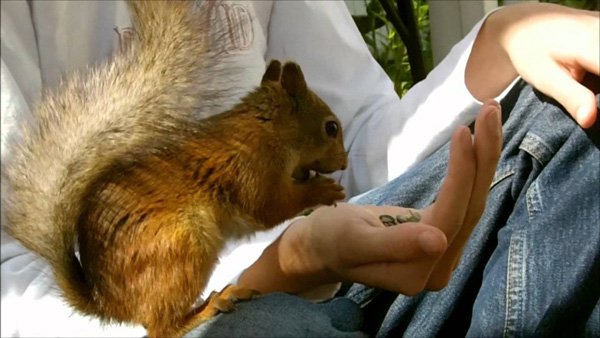For most people, wildlife appreciation ends after they leave the zoo. But for people who deal with the occasional unwanted houseguest in the form of those seemingly cute and cuddly, four-footed creatures, they can be a real pain. Fortunately, these days, there are more
humane wildlife control measures to resolving these problems. Traps, poison, or relocation are outdated methods of dealing with wildlife and don't get to the root of the problem either. They only serve to unnecessarily harm the animals or separate them from their families causing injury, stress, and even death. New methods are currently in practice that deals with wildlife control in a practical, humane, and environmentally safe manner.
Prevention is the key to
humane wildlife control. Knowing which species of wildlife your home might be vulnerable to will help you properly dealing with it. View your home from an outsider's perspective. Assess any areas that may have holes, cracks, or openings where small wildlife like squirrels, mice, skunks, or rats can enter, and secure them. If you're dealing with an infestation, it's best to get professional help. They will ensure that the animals are properly removed and released. When it comes the venting of gas appliances like high-powered furnaces, while you may be tempted to seal it with cloth or steel wool, do not. This may cause a back up of carbon monoxide and will endanger the people in your home. Have a professional look at it and deal with it accordingly.
Monitor your home and keep an eye on places like the attic, where animals can crawl through gable vents; the crawl space underneath your home or air-conditioning unit, rodents and other small wildlife are attracted to dark, damp spaces, so keep water and most especially food stored in air-tight containers or the fridge, away from anywhere animals can get to.
Be vigilant when it comes to checking cables and wires. If there are small wildlife living in your home, they'll most likely gnaw through them and this could be a fire hazard. Remember to also check for any animals before sealing a hole. Should you seal one while an animal is present, when they die you won't only have to deal with the smell but potentially harmful viruses.
Keep your home and environment safe through
humane wildlife control. Remember that the "old ways" of doing things doesn't always mean it's the "right way." Traditional methods of wildlife control, such as employing traps and poisons to maim or kill the animal, do little to fix the problem and encourage cruelty at the same time.

 Top Reasons to Feed Vitalife Treats to Dogs
Top Reasons to Feed Vitalife Treats to Dogs
Do
Top Reasons to Feed Vitalife Treats to Dogs
Top Reasons to Feed Vitalife Treats to Dogs
Do
 Saint Bernard Dog Hereditary Health And Health Testing
Saint Bernard Dog
Saint Bernard Dog Hereditary Health And Health Testing
Saint Bernard Dog
 Mrsa Infection In Dogs
Mrsa Infection In
Mrsa Infection In Dogs
Mrsa Infection In
 6 Breeds Of Cat That Love Water
6 Breeds Of Cat T
6 Breeds Of Cat That Love Water
6 Breeds Of Cat T
 Supplies That The Owner Of A Diabetic Dog Should Keep To Hand
Supplies That The
Supplies That The Owner Of A Diabetic Dog Should Keep To Hand
Supplies That The